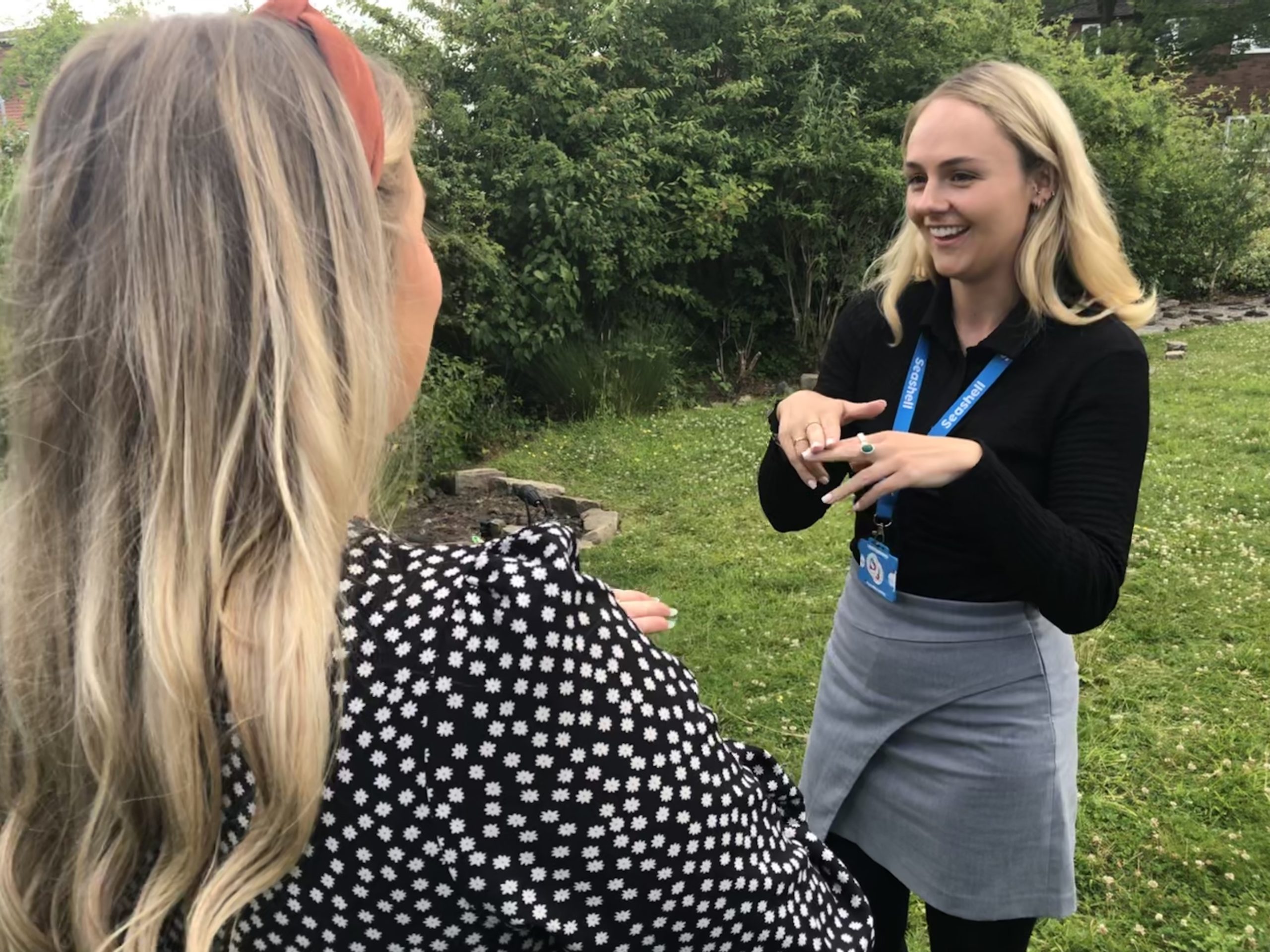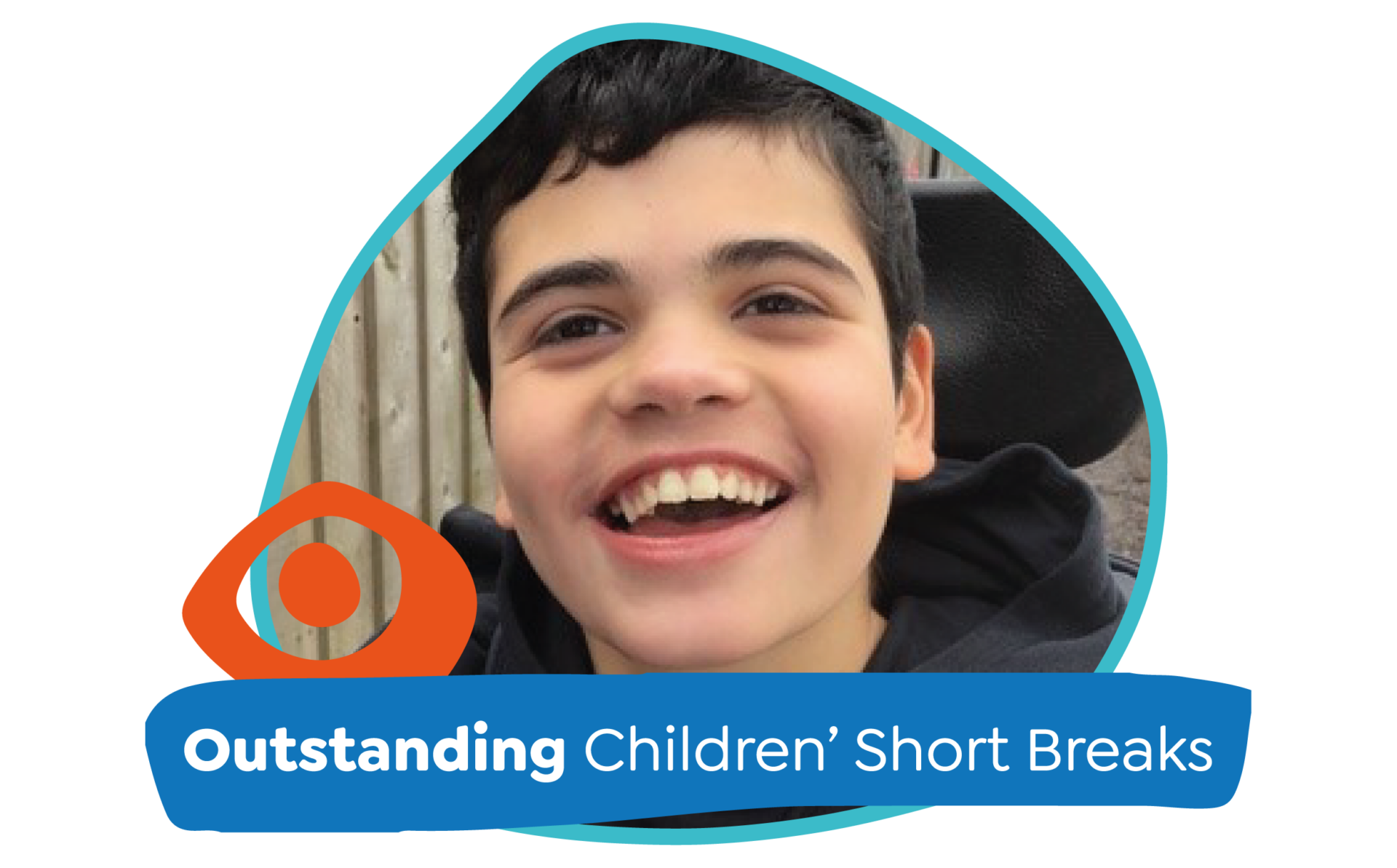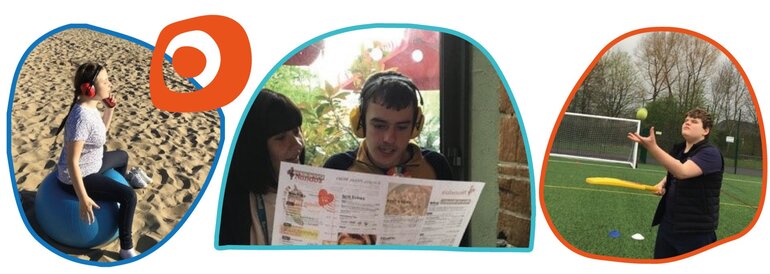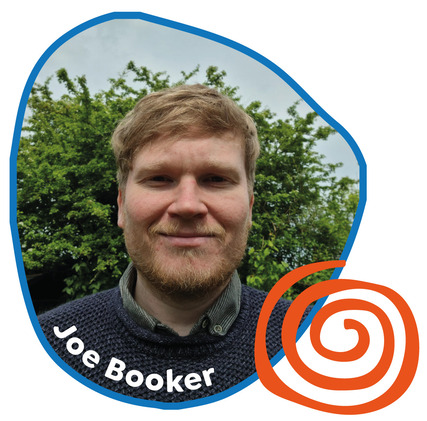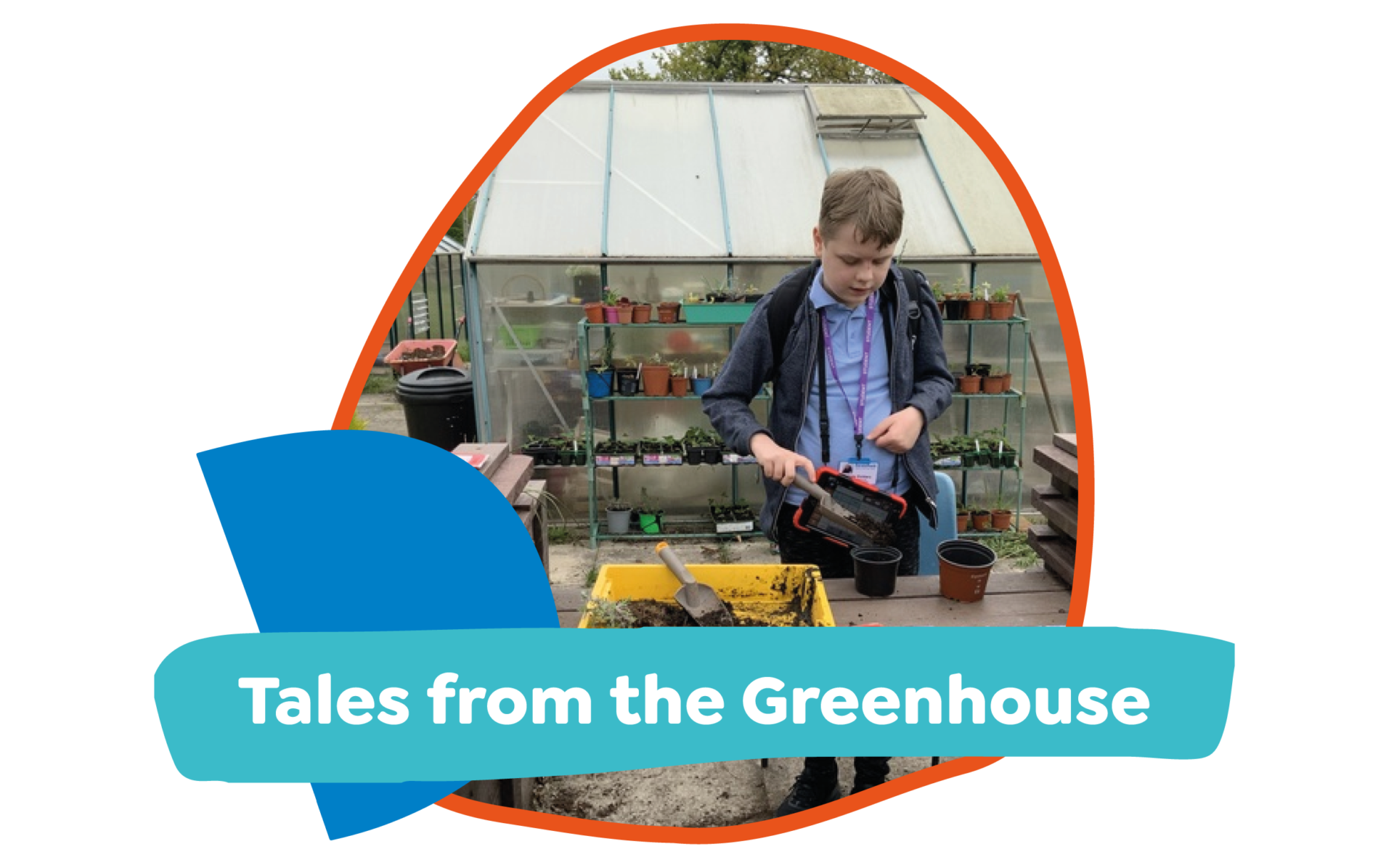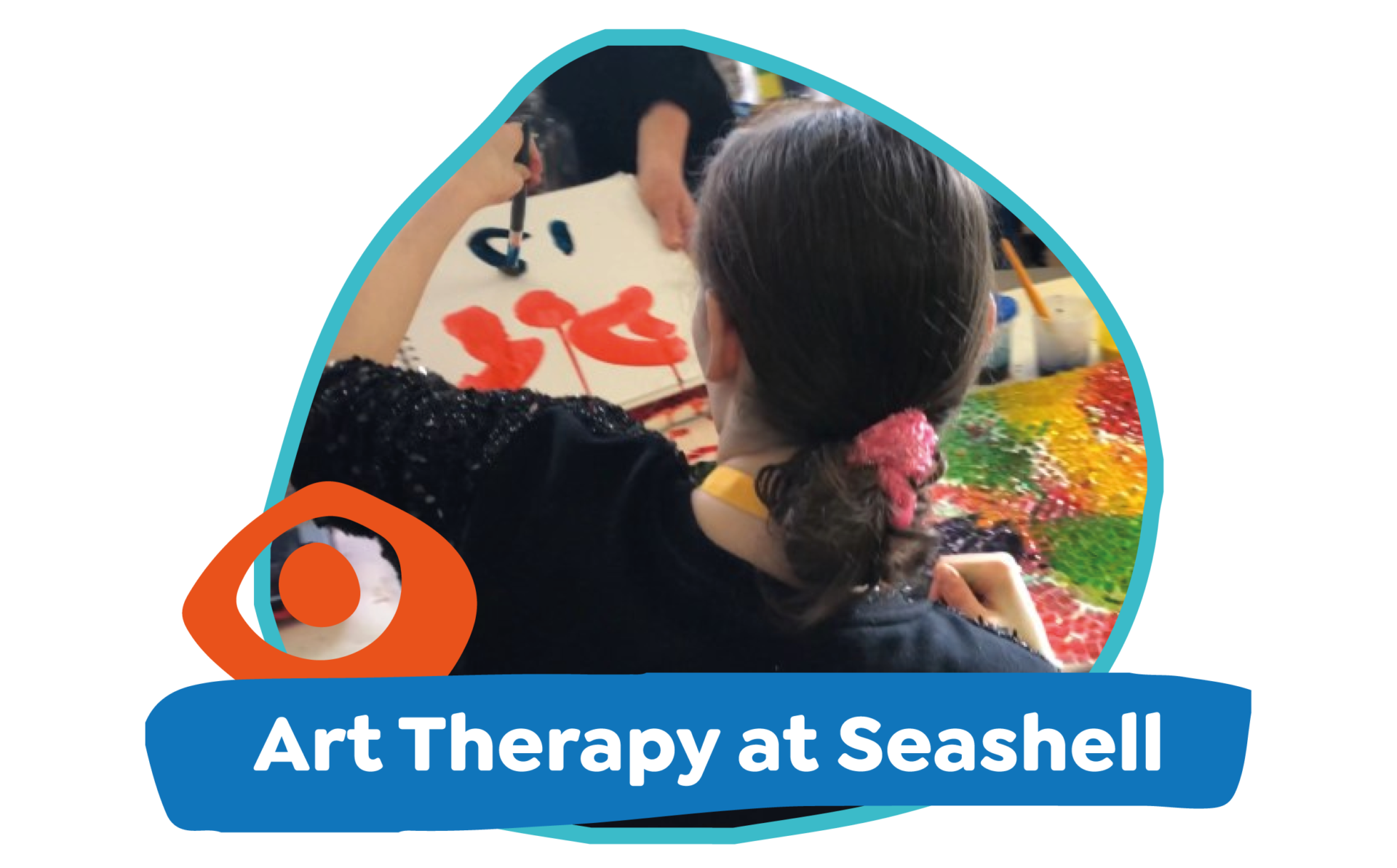At Seashell, we are truly blessed to have the support of some amazing volunteers who give their time, talent and energy to make a difference to our students, residents, staff and community.
One of our individual volunteers – Sue – has been volunteering on a regular basis for 6 years and during that time, has impacted many children and young adults experiences in our school, college and inclusive sport and activity programme, CADS.
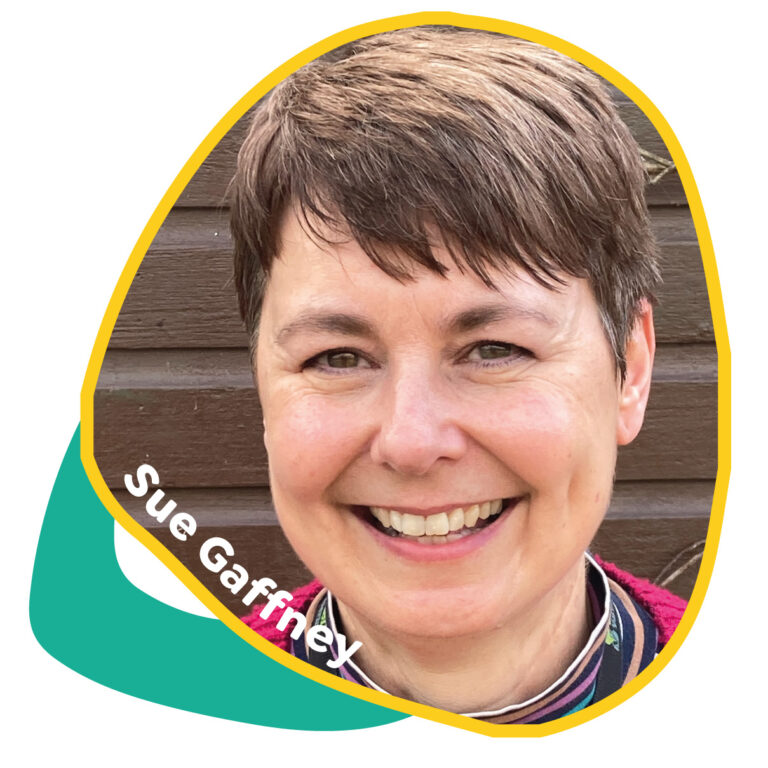
“My name is Sue Gaffney and I have volunteered at Seashell for the past 6 years. Currently, I volunteer every Tuesday, helping Jean who teaches Outdoor Learning at the Royal School. In these lessons students learn how to plant seeds and bulbs and cultivate them to grow fruit, vegetables and flowers. With Jean’s help, they plant up the flowers into planters and hanging baskets, which they sell in the school and externally in “pop up shops”. This funds the purchase of all the growing materials and equipment for the next season. I get involved with preparing materials for lessons and help with watering, weeding, tidying up and all the garden maintenance jobs that are required throughout the year.
I decided to get involved in volunteering when my youngest child left for university, and I had some spare time. When I looked at volunteering in my local area, I came across the Seashell website, which had a number of opportunities working with children and young adults – something that particularly interested me.
My first volunteering experience at Seashell was at a Summer CADS Camp, where young people come together to enjoy a huge range of activities. This was great fun, exhausting, with never a dull moment!
I met lots of people and got to try out all sorts of things including baseball, wheelchair rugby and drumming.
When the new school year started, I came once a week to help with the set up and clearing away of ingredients and utensils for cookery lessons in the morning and preparation of materials for art classes in the afternoon. Over time I became a familiar presence to the students and one of them gave me the title of “Cookery Sue”!
I have found each volunteering experience to be very satisfying. They have all been quite varied and provided different challenges. I often find that it’s the small things that make you proud, for example the realisation that setting up ingredients and utensils for a cookery lesson took pressure off the teaching staff and made the lesson run more smoothly.
There have been many memorable moments over the years, when students overcome big challenges to finally succeed in a task they have found difficult. I have been invited to Christmas assemblies that are full of joy and excitement and Leavers assemblies which are always very moving.
When giant bees started appearing all over Manchester, I was part of a team led by art teacher Lauren who created ShellBee, the only multi-sensory bee in the hive. Along with the rest of the team, I was invited to the launch of the bees in Manchester, which was a great experience.
A fun fact about me is for the past 20 years, every Friday night I have slipped on my dancing shoes and tap danced through a couple of lessons. I started lessons too late in life to be very good, but I love it and I don’t intend to hang up my dancing shoes any time soon!
Some advice I would give to someone considering volunteering at Seashell would simply be – be willing to try new things and get stuck in!”
Do something good and feel great doing it!
It’s human nature to feel good after helping someone out. Volunteering can also help you gain valuable new skills and experiences, and boost your confidence. Interested in giving it a go and want to find out more?
Read more about volunteering at Seashell here.

